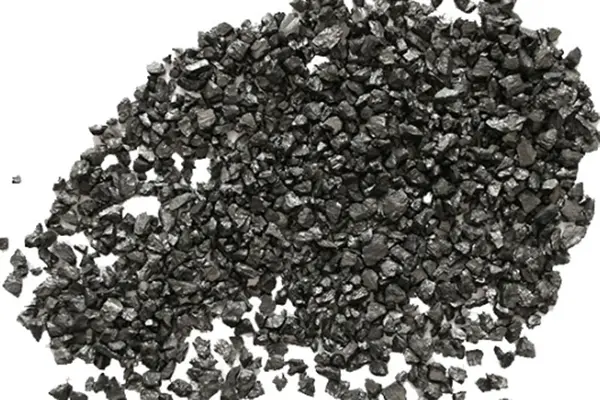Coke, a critical component in the production of steel and other industrial processes, has a unique and fascinating relationship with coal tar. Often associated with the energy sector and metallurgy, coke is produced from coal and serves as both a fuel and a reducing agent in blast furnaces. But is coal tar used to make coke? The answer is yes, coal tar plays a significant role in the production of coke, particularly in the form of coal tar pitch coke. This article delves into how coal tar contributes to coke production and its essential role in creating high-performance materials.
What Is Coke?
Coke is a porous, carbon-rich substance derived from the destructive distillation of coal. During the coking process, coal is heated in the absence of air to drive off volatile substances, leaving behind solid carbon. This solid carbon material—coke—is primarily used in the production of steel, where it acts as a fuel and a source of carbon in the reduction of iron ore.
Coke is characterized by its high carbon content, low levels of impurities, and excellent porosity, which allows it to burn efficiently and provide a consistent source of energy. Its strength and ability to withstand high temperatures make it indispensable in many industrial applications.
The Role of Coal Tar in Coke Production
Coal tar is a byproduct of the coking process. When coal is heated in the absence of air, volatile compounds like water, ammonia, and hydrocarbons are released. These volatile compounds condense to form coal tar, a thick, black liquid that contains a mixture of aromatic hydrocarbons.
Although coal tar itself is not directly used to make coke, it plays an important supporting role. Coal tar can be processed into coal tar pitch, a binding agent used in the production of electrodes, as well as in the creation of coal tar pitch coke, which has unique properties that make it suitable for specialized applications.
Coal Tar Pitch Coke: A Specialized Form of Coke
While conventional coke is primarily used in blast furnaces for steel production, coal tar pitch coke is a more refined and specialized product, derived from the further processing of coal tar. This coke is made by heating coal tar pitch to extremely high temperatures to form a solid carbon material. Unlike regular coke, coal tar pitch coke has a higher degree of graphitization, which enhances its conductivity and thermal stability, making it particularly suitable for use in manufacturing graphite electrodes.
Coal tar pitch, the precursor to coal tar pitch coke, is a viscous substance that is solidified by heating it to high temperatures. This pitch is then baked at even higher temperatures in a controlled environment to produce coal tar pitch coke. The process involves the pyrolysis of the pitch at temperatures above 1,200°C, leading to a high-carbon material with excellent mechanical strength and thermal properties.
Why Is Coal Tar Pitch Coke Important?
The production of coal tar pitch coke is crucial in several industries. Its high carbon content and structural integrity make it an ideal material for manufacturing graphite electrodes, which are essential components in electric arc furnaces (EAF) used for steel production. These electrodes must be able to withstand extreme temperatures while maintaining their conductivity and mechanical strength, which is where coal tar pitch coke comes in.
Coal tar pitch coke is also used in aluminum production, where it is employed as a conductive material in the production of aluminum cells. Its ability to resist heat and oxidation while maintaining electrical conductivity makes it invaluable in processes that require high performance under extreme conditions.

The Coking Process and the Role of Coal Tar
The overall coking process involves multiple stages, each playing a crucial role in transforming raw coal into coke and generating coal tar as a byproduct. During the destructive distillation process, the coal is heated in a coke oven, and the volatile gases are expelled and condensed into coal tar. The remaining solid carbon, after the removal of impurities, forms the coke.
Although coal tar itself is not the final product, it is a vital part of the overall production cycle. It can be further processed to create coal tar pitch, which is then used to manufacture coal tar pitch coke. This coke has different characteristics from traditional coke, with higher density and conductivity, making it especially useful in electrode manufacturing and other specialized industrial applications.
Conclusion
To answer the question, "Is coal tar used to make coke?" the answer is nuanced. Coal tar is not used directly in the creation of traditional coke, but it is an important byproduct of the coking process and serves as the precursor to coal tar pitch coke. This specialized form of coke, created by the high-temperature processing of coal tar pitch, plays a significant role in industries like steelmaking and aluminum production. The unique properties of coal tar pitch coke, including its high carbon content, density, and thermal stability, make it an indispensable material for high-performance applications, particularly in the manufacturing of graphite electrodes.
By understanding the interplay between coal, coal tar, and coke production, we can appreciate the sophisticated processes that produce materials essential to modern industrial technologies.
Post time: 12-09-2024





